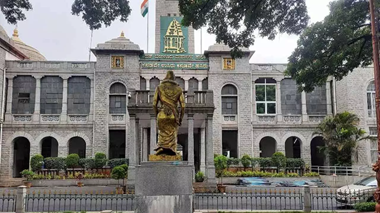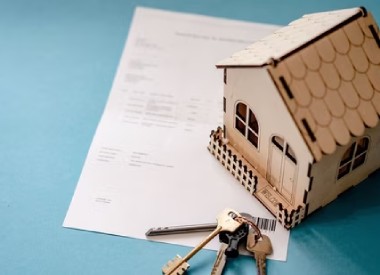Bengaluru, India's Silicon Valley, has been experiencing unprecedented urban growth over the past few decades. As the city expands beyond its traditional boundaries, the need for coordinated urban planning and governance has become more critical than ever. This transformative challenge led to the creation of the Greater Bengaluru Authority (GBA), a groundbreaking institution that's fundamentally reshaping how real estate in Bengaluru is planned, developed, and regulated.
What is the Greater Bengaluru Authority (GBA)?
The Greater Bengaluru Authority is a revolutionary metropolitan governance body that officially came into effect on September 2, 2025, through the Greater Bengaluru Governance Act, 2024. The GBA represents the first-of-its-kind three-tier governance structure in India, designed to address the fragmented urban management that previously plagued Bengaluru's development.
The GBA is chaired by the Chief Minister of Karnataka and comprises 75 members, including all Karnataka ministers, Members of Parliament, Members of the Legislative Assembly and Council from Bengaluru, as well as mayors of the five newly formed City Corporations. The GBA Executive Committee is chaired by the Bengaluru Development Minister, effectively bringing city governance under direct State government control.
Covering an area of 721 square kilometres, the Greater Bengaluru Authority replaces the erstwhile Bruhat Bengaluru Mahanagara Palike (BBMP) and encompasses not just Bengaluru city proper but also surrounding satellite towns and villages that have become integral parts of the metropolitan ecosystem.
The Three-Tier Governance Structure
The Greater Bengaluru Governance Act, 2024, implements an innovative three-tier structure:
- Greater Bengaluru Authority (Top Tier): The apex body responsible for harmonising planning, development, and service delivery across all departments and agencies. Its primary mandate is to coordinate and supervise activities across all city corporations.
- Five City Corporations (Middle Tier): The city is divided into five smaller City Corporations - East, West, Central, North, and South - each with its own Council, Mayor, and Commissioner. These corporations have significant autonomy over local affairs, including financial matters and taxation.
- Ward Committees (Bottom Tier): Enhanced ward committees with 14 members (instead of the previous 10), where seven members are selected through a lottery system among registered voters, ensuring greater citizen participation in local governance.
Key Functions Impacting Real Estate Development
The Greater Bengaluru Authority operates with several critical mandates that directly impact real estate in Bengaluru:
Infrastructure Coordination: The GBA serves as the primary planning authority for large-scale infrastructure projects spanning multiple administrative boundaries, including transportation corridors, water supply systems, and power distribution networks.
Unified Regulation: The authority establishes consistent development guidelines across the metropolitan area, ensuring that real estate in Bengaluru follows standardized norms promoting sustainable growth.
Streamlined Approvals: By coordinating between various government departments and agencies, the GBA reduces bureaucratic delays and ensures development projects receive necessary clearances promptly.
Transformational Impact on the Real Estate Market
The establishment of the GBA has created profound implications for Bengaluru's real estate sector:
Standardization Benefits: Previously, developers navigated different regulations depending on local authority jurisdiction. The GBA's unified approach has simplified this process considerably, making real estate in Bengaluru more predictable and investor-friendly.
New Growth Corridors: The authority's infrastructure focus has created new investment opportunities in previously peripheral areas, leading to more affordable housing options while relieving pressure on established locations.
Enhanced Quality Standards: Developers now adhere to higher standards regarding amenities, green spaces, and community facilities, ultimately benefiting end-users and investors.
Infrastructure and Connectivity Revolution
One of the GBA's most significant contributions has been improving transportation infrastructure through suburban rail networks, bus rapid transit systems, and highway expansions. These improvements have expanded the definition of "prime locations" in Bengaluru's real estate market, with previously distant areas becoming viable residential and commercial destinations.
The enhanced connectivity has created a ripple effect, with property values appreciating along major transportation corridors and new developments emerging in previously undeveloped areas.
Environmental Sustainability Focus
The GBA prioritizes environmental sustainability through stricter clearance procedures and green building practices. This focus has improved the city's environmental profile while enhancing long-term value propositions for real estate investments.
Water management coordination across the metropolitan area has addressed key constraints that previously limited real estate development in certain areas.
Challenges and Future Prospects
Despite its transformative potential, the GBA faces challenges, including jurisdictional coordination issues and the rapid pace of urbanization that sometimes outstrips infrastructure provision capabilities. However, long-term prospects remain promising as the authority matures and establishes effective working relationships with government agencies.
The authority's digital initiatives, including online approval systems and transparent project tracking, are streamlining processes and reducing time and costs associated with real estate development projects.
Conclusion
The Greater Bengaluru Authority represents a transformative approach to urban governance, fundamentally reshaping real estate in Bengaluru. By providing unified planning, improved infrastructure coordination, and streamlined approval processes, the GBA creates an environment where sustainable real estate growth can flourish.
For property investors and developers, understanding the GBA's role and staying informed about its initiatives is crucial for making informed decisions.. Working with experienced lawyers in Bangalore for property verification ensures all legal and regulatory requirements are properly addressed in this new governance environment.
The GBA's focus on bringing all civic agencies under one umbrella, combined with improved citizen participation, indicates a promising future for Bengaluru's urban development and real estate in Bengaluru growth.
Frequently Asked Questions (FAQs)
- What is the primary difference between GBA and the previous BBMP system?
The Greater Bengaluru Authority operates through a three-tier governance structure covering 721 sq km with five City Corporations, unlike BBMP's single municipal corporation. The GBA brings all civic agencies like BESCOM, BWSSB, BMTC, and BMRCL under one umbrella for coordinated planning and development.
- How does the GBA approval process affect property buyers in real estate in Bengaluru?
The GBA's standardized approval process ensures properties meet consistent quality and legal standards across all five City Corporations, providing greater security for property buyers and simplifying the legal verification of property near me process.
- Which areas fall under the Greater Bengaluru Authority's jurisdiction?
The Greater Bengaluru Authority jurisdiction covers the entire 721 square kilometre area, divided into five City Corporations - East, West, Central, North, and South - including Bengaluru city and surrounding satellite towns that form the greater metropolitan region.
- How has the GBA improved infrastructure development for real estate in Bengaluru?
The GBA coordinates large-scale infrastructure projects across administrative boundaries, including transportation networks, water supply, and power distribution, creating new growth corridors and making previously peripheral areas attractive for real estate in Bengaluru development.
- What should property investors know about GBA regulations and legal compliance?
Property investors should stay informed about GBA's standardized planning guidelines, streamlined approval processes, and infrastructure development plans. It's essential to work with experienced lawyers in Bangalore for property verification to ensure compliance with new regulatory requirements and proper legal documentation in the evolving governance structure.


.jpg)

.jpg)

Leave a Reply
Your email address will not be published. Required fields are marked*